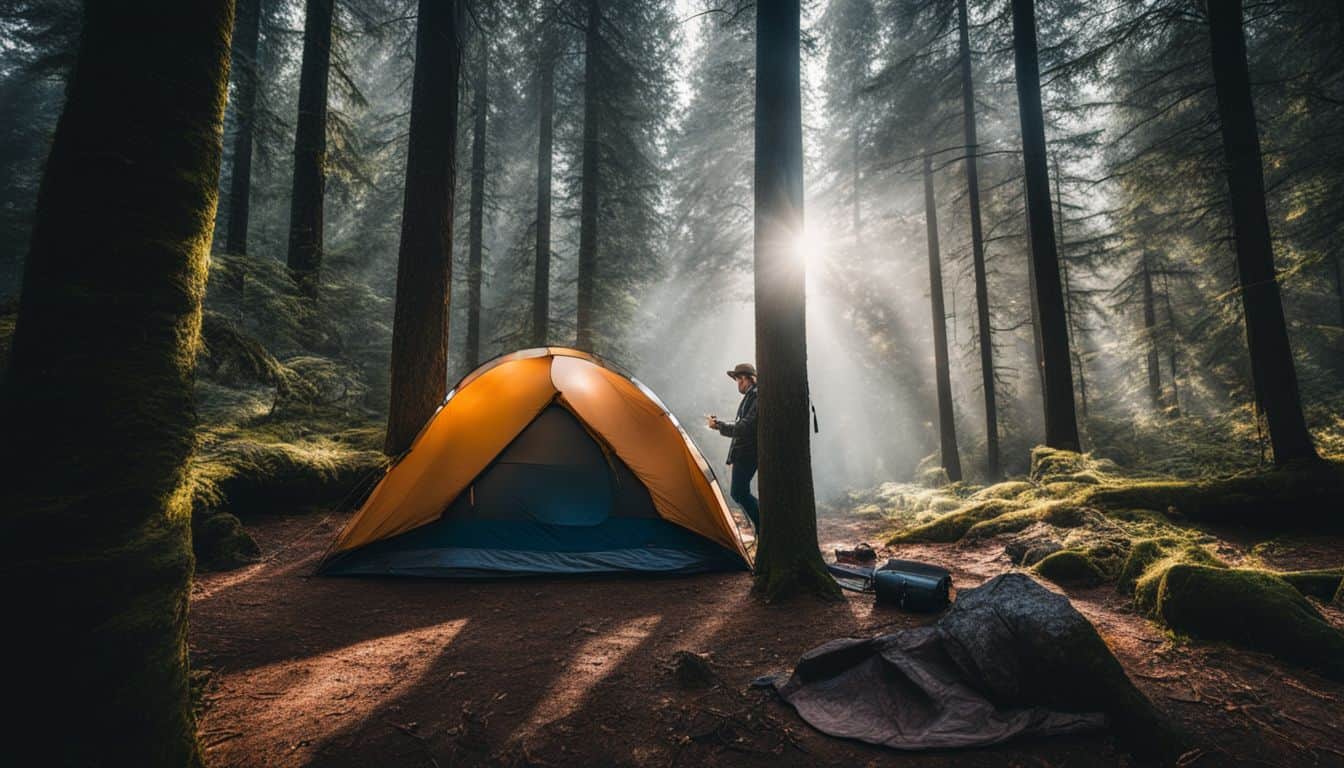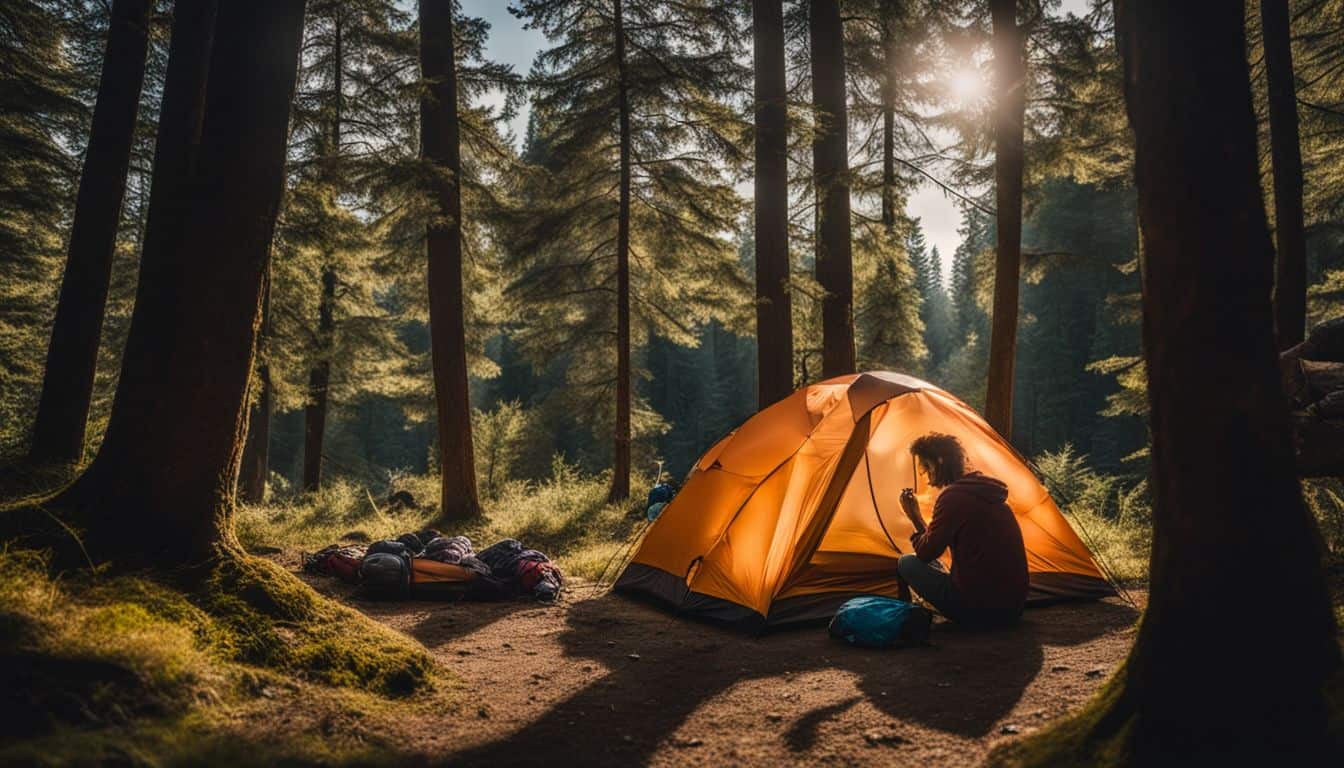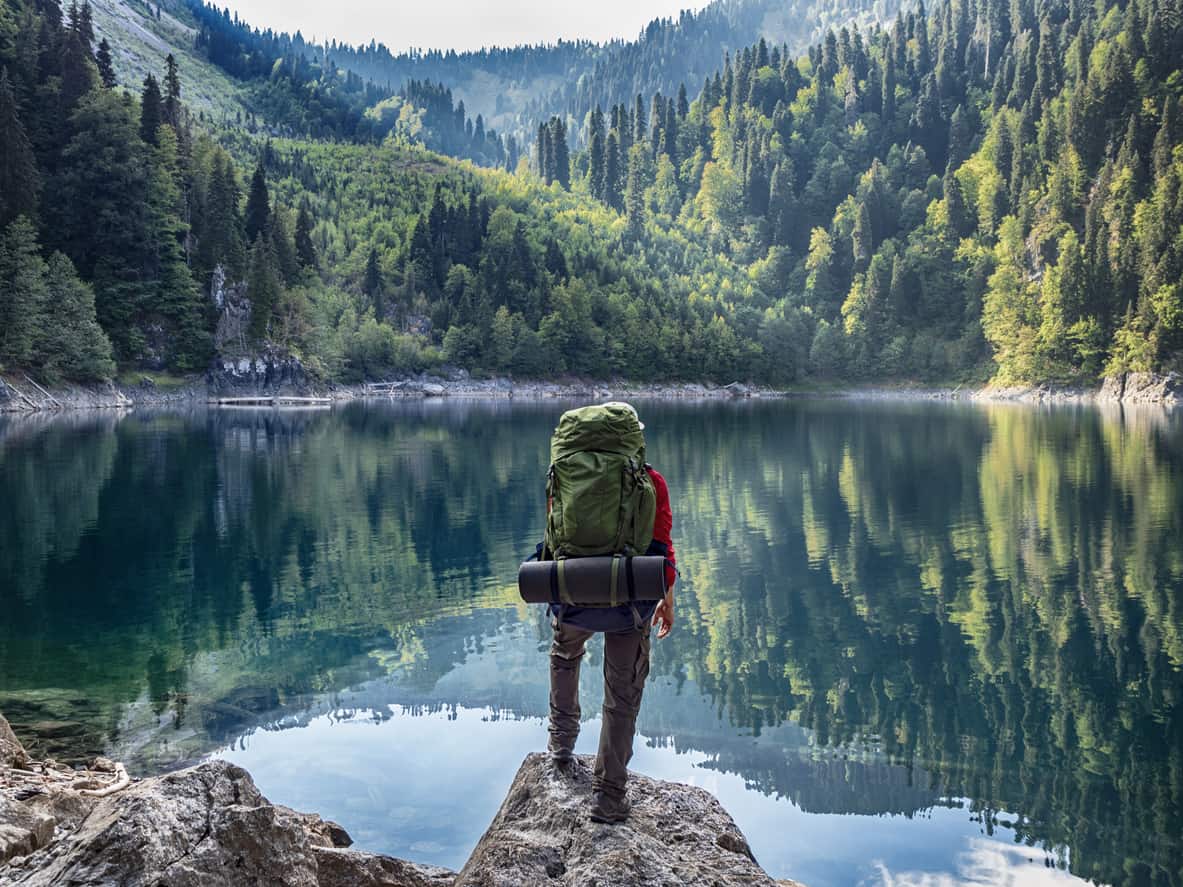Camping alone can be a rewarding experience, offering solitude, self-reliance, and a deep connection with nature. It’s one of the most enriching activities you can do while camping. However, it’s crucial to prioritize safety when venturing out on your own. This guide provides essential tips to ensure a safe and enjoyable solo camping trip.
Preparation is Key
Proper preparation is the foundation of a safe solo camping experience. Start by choosing your campsite wisely. For beginners, it’s best to start with established campgrounds close to home. As you gain experience, you can gradually work up to more remote locations. Research the area thoroughly, including potential hazards and regulations.
Informing others of your plans is crucial when camping alone. Share your detailed itinerary with a trusted friend or family member. Include GPS coordinates of planned campsites if possible. Agree on check-in times and procedures so someone knows when to expect to hear from you.
Always check weather forecasts before your trip. Be prepared for changing conditions and consider postponing if severe weather is expected. Remember, there’s no shame in rescheduling a trip if conditions aren’t favorable.

Essential Gear for Safety
When it comes to types of camping, solo camping requires extra attention to safety gear. Here are some essentials:
- Navigation tools: Bring a physical map and compass, and know how to use them. A GPS device or smartphone with offline maps can be helpful, but don’t rely solely on electronic devices.
- Communication devices: Carry a fully charged cell phone. For remote areas, consider a satellite messenger or personal locator beacon.
- First aid kit: Include any personal medications and familiarize yourself with basic first aid skills.
- Proper clothing and gear: Dress in layers appropriate for the climate. Always bring rain gear and extra warm clothing.
- Lighting: A headlamp or flashlight with extra batteries is essential for navigating in the dark.
- Fire starting materials: Pack waterproof matches or a lighter, along with fire starter cubes.
- Emergency shelter: An emergency blanket or bivy sack can be a lifesaver in unexpected situations.
Campsite Safety
Arriving early at your campsite allows you to set up in daylight and familiarize yourself with the surroundings. Choose a safe location away from dead trees or branches that could fall, on higher ground to avoid flash floods, and at least 200 feet from water sources.
Proper food storage is crucial, especially in areas with wildlife. Use bear-resistant containers or hang food properly. Always cook and store food away from your sleeping area to avoid attracting animals to your tent.
Follow local fire regulations and fully extinguish fires before sleeping or leaving the site. A responsible camper leaves no trace and ensures the safety of the forest and future campers.
Personal Safety
Trust your instincts when camping alone. If a situation feels unsafe, don’t hesitate to leave and find another spot. Stay alert and be aware of your surroundings at all times. In some areas, carrying bear spray or other self-defense items might be appropriate.
Avoid sharing your real-time location on social media. While it’s tempting to post about your adventure, wait until you’re back home to share details of your trip.
Learning basic outdoor skills is essential for solo camping. These include navigation, fire building, water purification, and basic first aid and wilderness survival techniques. The more knowledge you have, the safer and more confident you’ll feel in the wilderness.
Wildlife Safety
Research the local wildlife in your camping area and know how to respond to potential encounters. When hiking, make noise to avoid surprising animals. Proper food storage is crucial not just for your supplies, but to avoid attracting wildlife to your campsite.
In bear country, always carry bear spray and know how to use it. Remember, most wildlife encounters can be avoided by being aware and respectful of animal habitats.
Enjoying Your Solo Experience
Solo camping isn’t just about safety—it’s also about enjoyment. Bring entertainment like books, a journal, or art supplies. Binoculars can be great for bird watching or stargazing.
Practice mindfulness and take time to appreciate the solitude and natural surroundings. This can be a powerful opportunity for self-reflection and connection with nature.
If you’re new to solo camping, start with shorter trips. Build confidence gradually with one or two-night trips before embarking on longer adventures. Staying busy with activities like hiking, photography, or nature observation can help you feel more comfortable and engaged during your solo trip.

Conclusion
Remember, the key to a safe solo camping experience is thorough preparation, staying alert, and trusting your instincts. With proper planning and precautions, camping alone can be a deeply rewarding and empowering experience. Enjoy the solitude and connection with nature while always prioritizing your safety.

Leave a Reply